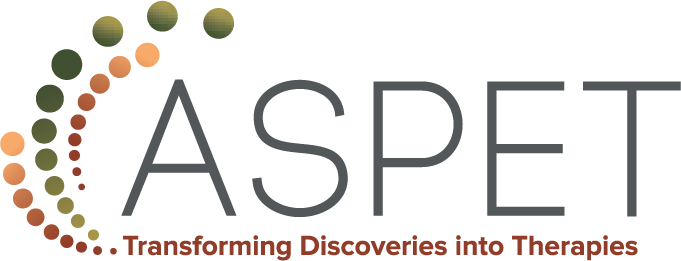Peer Review Week: Innovation and Technology in Peer Review
ASPET acknowledges the vital contributions of its peer reviewers across its five journals. They work diligently to maintain the journal review process and elevate the important science published on pharmacology and experimental therapeutics. According to the Society for Scholarly Publishing, Peer Review Week is a globally recognized, annual, community-led, virtual event that celebrates the indispensable role of peer review in upholding research quality.
This year’s celebration will be held between September 23–27, 2024, and the theme is “Innovation and Technology in Peer Review.” To engage with this theme and to start what we hope will be a deeper conversation, ASPET asked this question to members of the 2024 JPET Editorial Fellows:
What do you think the impact of innovation and technology will be on the evolving publishing landscape?
Here’s what some of the fellows had to say:
 “I think that Artificial Intelligence (AI)-driven tools are a double-edged sword, bringing both opportunities and challenges to the peer review process. They can streamline the workflow by assisting editorial board members and peer reviewers with screening journal submissions, detecting plagiarism, and finding peer-reviewers, thus reallocating time for scientific evaluation and reducing the workload-related delays. AI can also enhance inclusivity and diversity by supporting non-native English authors and peer reviewers. On the other hand, AI tools can introduce inaccuracy and biases and make research misconduct easier. Responsible and ethical use of AI has the potential to serve scholarly publishers and the scientific community at large.”
“I think that Artificial Intelligence (AI)-driven tools are a double-edged sword, bringing both opportunities and challenges to the peer review process. They can streamline the workflow by assisting editorial board members and peer reviewers with screening journal submissions, detecting plagiarism, and finding peer-reviewers, thus reallocating time for scientific evaluation and reducing the workload-related delays. AI can also enhance inclusivity and diversity by supporting non-native English authors and peer reviewers. On the other hand, AI tools can introduce inaccuracy and biases and make research misconduct easier. Responsible and ethical use of AI has the potential to serve scholarly publishers and the scientific community at large.”
Marie-Noëlle Paludetto
Postdoctoral Researcher, University of Manchester



“Innovation and technology are poised to transform the publishing landscape by improving the efficiency and precision of the editorial process, resulting in a shorter submission-to-decision timeline. Advanced AI tools can quickly identify data manipulations and ensure compliance with journal guidelines. Additionally, these tools can optimize the reviewer selection process by verifying expertise and detecting potential conflicts of interest, ultimately enhancing the quality and integrity of published articles.”
Khaled Abdelrahman, BPharm, PhD
Assistant Professor, University of British Columbia



“The impact of innovation and technology on the publishing landscape is transforming and multifaceted. For audiences, these advancements enable the creation and distribution of interactive materials, such as e-books, audiobooks, podcasts, and social media content. This not only efficiently improves global access to knowledge and information, but also significantly enhances our reading experiences, making it more interesting, engaging, and immersive, particularly for educational and practical content.
For writers, AI tools, such as ChatGPT, are increasingly employed to create content in multiple aspects, from writing and idea generation to article translation and editing. This allows human writers to focus on creative and communicative jobs, freeing them from repetitive, laborious, and time-consuming tasks.
For publishers and platforms, AI-assisted algorithms provide personalized recommendations and services to potential readers, reaching targeted audiences and customers more effectively and extending the media marketing through new business models.
While technology offers unprecedented opportunities, careful consideration is needed to address current challenges related to ethics, information quality, and accessibility; and traditional publishers must adapt to rapidly changing market dynamics, balancing technological innovations with established practices to deliver the best services to their customers.”
Qingxiang (Nick) Lin, PhD
Postdoctoral Research Fellow, Massachusetts General Cancer Center and Harvard Medical School


